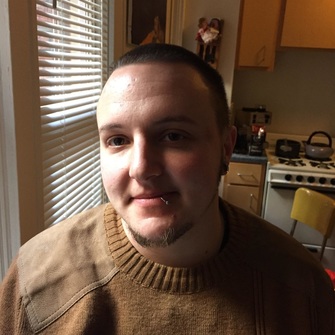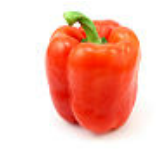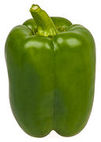
I still can't eat defrosted peppers. They taste like sadness.
I was 10 when my doctor first informed me that I was overweight. It was during a routine physical. I was weighed, palpated, prodded by a kindly old doctor with a thick, Israeli accent and olive-brown, calloused hands. He saw on my chart that I was one pound over the suggested BMI for 10-year-old, female-assigned children. He laughed and joked that I needed to go on a diet. My mother laughed too. My eyes widened as I sat there in my underpants, not comprehending my doctor's dry delivery. All I could think of were all the times my mother had gently informed me of my protruding gut. He could not have known how seriously I would take this attempt at humor over a non-issue.
My belly had always been round. My younger sister was underweight at the time and received a lot of attention as a child model. We all fussed over her as she got head shots taken and went to modeling and acting auditions. My mother would observe that we could count her ribs when she was in the bathtub. I was never sure wehther this was a source for alarm or a quality to be aspired to. When she was measured for a dance costume, all three width measurements were the same. Again, the half chuckles of teachers and family over this fact seemed more awe than concern, to me. I learned that to be thin was to be loved. To have the sharpness of bones visible: the top of the pelvis, the deep hollow around the collarbones, the just barely sunken cheeks. I wanted that. I wanted not to fail at yet another test of girlhood.
I am a 30-year-old man, who was raised female. I always knew I wasn't a girl, or a woman, or any of the qualities associated with those identities. Starving myself thin would serve not only as compensation for this failure to be a girl. It would curb the growth of hips and breasts that I so mortally feared.
I asked my mother if I could start going to Weight Watchers with her. She agreed, excited to share this supposed zest for healthy living and bond with her "daughter." My father had just died suddenly and I clung to my mother with ferocity. I had to make her happy. I had to make her proud of her skinny, pretty girls.
I started attending meetings. I was welcome there, even if I wasn't yet legally allowed to sign up. I watched enthusiastic ladies scrawl on large note pads about willpower and the evils of cravings. The evils of hunger. The allure of the great (and futile) pursuit of the lithe body that Twiggy made so famous. I was assured that I could eat as many vegetables as I wanted, as they cost no points from my weekly allotment. (Something that wasn't frequently in my mother's fridge, but that's a whole other story.) I mostly subsisted on the frozen meals and prepackaged snacks we purchased each week as part of the diet plan. It was all on the infamous points system. I almost never felt full. I was constantly dizzy and nauseous and learned to associate the flavor of defrosted peppers with sorrow. The waxy red and green peels, their pulp and acrid-tasting slime, choked down as punishment. Penance for my failure to reach the skeletal standard of beauty.
I stayed the course righteously. I did indeed lose weight. And gained it all back when my mother ran out of money for the expense of being fat-shamed and sold empty calories. My disordered eating continued on and off through my adolescence. Fueled by the lessons of Weight Watchers and comments about being too fat to wear a midriff shirt. There were times when I would exercise furiously and live off of unsalted Matzoh and water. I weighed 100 pounds in middle school through almost all of high school. I was and still am the shortest, smallest member of my immediate family.
It wasn't until I began to see fat-positive culture and come to terms with my gender that I became the rounder, happier man I am now. When I am reminded of old, fat-shaming messages, I turn to fat-positive literature. (FAT!SO?, by Marilyn Wann, was a game-changer for me.) I look to the bear community and remember that fat, hairy men are attractive and desirable. I steer clear of conversations with my family about how many pounds they've lost or gained. I hold my inner child and tell him he can take up space in this world.
photo credit: By Justus Blümer from Deutschland (Paprika (rot)Uploaded by Common Good) [CC BY 2.0 (http://creativecommons.org/licenses/by/2.0)], via Wikimedia Commons. By Evan-Amos (Own work) [Public domain], via Wikimedia Commons.


 RSS Feed
RSS Feed
